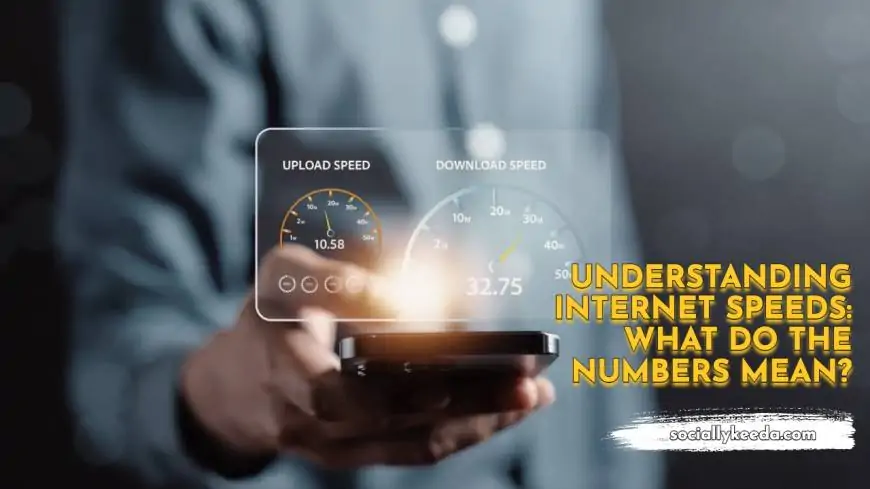Internet speed refers to how quickly data travels between your device and the internet. Think of it like water flowing through a pipe – the wider the pipe, the more water can flow through it. Similarly, faster internet speeds mean more data can move back and forth, making your online activities smoother and faster.
With the average household now having multiple connected devices and increasing demands for streaming, gaming, and video calls, understanding internet speeds has become more important than ever. Whether you're choosing an internet plan or troubleshooting connection issues, knowing what these numbers mean can help you make better decisions for your online needs.
Download vs Upload Speeds
When you're looking for better internet experiences, consider the download and upload speeds.
Download speed is how quickly you can receive data from the internet. This affects activities like streaming movies, downloading files, or browsing websites. For example, with a 100 Mbps download speed, you could download a 1-gigabyte movie in about 80 seconds.
Upload speed, on the other hand, is how fast you can send data to the internet. This becomes important when you're video calling, uploading files to cloud storage, or posting videos to social media. Upload speeds are typically slower than download speeds for most home internet connections.
Common Speed Measurements
Internet speeds are usually measured in megabits per second (Mbps) or gigabits per second (Gbps). One gigabit equals 1,000 megabits. Here's what different speeds typically allow you to do:
10 Mbps - Good for basic web browsing and email25 Mbps - Sufficient for HD video streaming50 Mbps - Supports multiple devices streaming HD content100 Mbps - Excellent for gaming and 4K streaming1 Gbps - Ultra-fast speed for heavy internet usage and large households
What Speed Do You Really Need?
The speed you need depends on how you use the internet. A single person who mainly browses the web and checks email might be fine with 25 Mbps. A family that streams videos on multiple devices, plays online games, and works from home might want at least 100 Mbps. Consider how many people and devices will be using your internet simultaneously.
Factors Affecting Your Actual Speed
Your actual internet speed can be different from what your provider advertises. Several factors can affect your speed:
Network congestion during peak hours can slow things down, similar to traffic on a busy highway. The quality and length of cables in your home can impact speed. Your Wi-Fi router's capabilities and location matter – walls and distance can weaken signals. Even the age and capabilities of your devices can limit your actual speeds.
Why Speed Tests Sometimes Show Different Results
Speed test results can vary throughout the day. Testing during peak evening hours might show slower speeds than early morning tests. The server location used for the test also matters – testing against a server far away typically shows slower speeds than one nearby. Multiple tests at different times give you a better picture of your actual speeds.
Future of Internet Speeds
Internet speeds continue to increase as technology advances. Fiber-optic networks are becoming more common, offering speeds up to 10 Gbps. 5G wireless networks promise faster mobile internet speeds than ever before. These improvements will enable new technologies like augmented reality streaming, cloud gaming, and 8K video content.
As our reliance on the internet grows, understanding these speeds helps you make informed decisions about your internet service. Whether you're choosing a new provider or troubleshooting slow connections, knowing what the numbers mean empowers you to get the service that best fits your needs.






